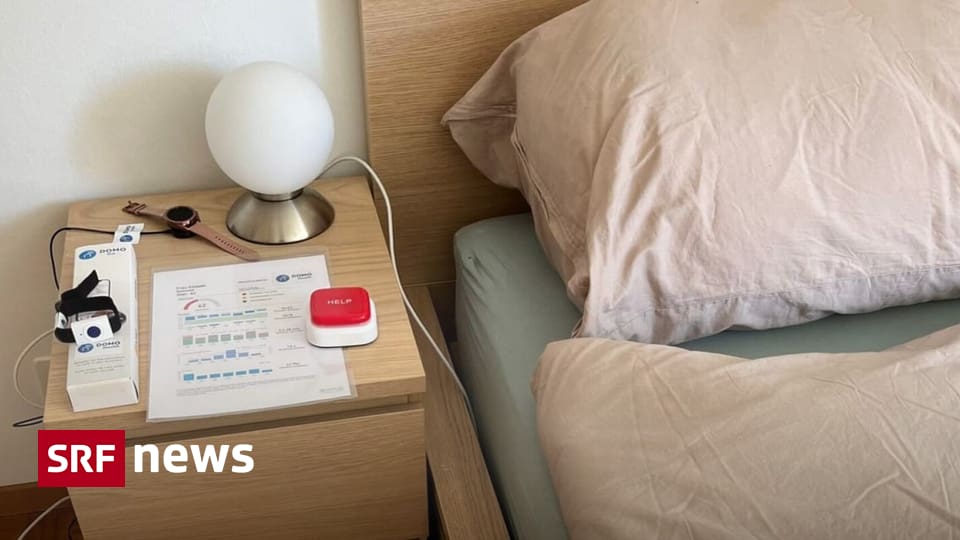
Digital aids support the elderly. You can view an apartment in Zurich and get information.
Attention is falling. This should be avoided if possible as it often signals the beginning of the end. If someone still falls, that person needs to get help sooner – faster, fewer consequences.
No one feels old
SAW has set up a showroom in the north of Zurich to show interested parties that technological aids for the elderly are already available on the open market: a 2-room apartment for the elderly, with a view over the countryside. Bedroom. If you look closely, you’ll notice a remote control next to the bed and Amazon’s smart speaker “Alexa” on the bookshelf.
This intelligent speaker is the epitome of the SAW strategy. Many seniors don’t want to walk around with a regular emergency button around their neck because they feel they’re being “old”, says Andreas Dreyer. On the other hand, your granddaughter can also use the smart speaker.
You can use the device to call for help in an emergency – but that’s not all: you can use a voice command to turn on the radio or lights. Andreas Drier recommends getting them used to such comfort technologies as early as possible when they are active, often hiking or traveling.
From digital light switches to alarms
The lamp plays an important role in preventing falls. You can turn on the light before you wake up with the remote control next to the bed at night. Sensors in the bedroom can detect when someone wakes up – and then turn on not only the light, but also the chain of lights leading to the front door of the bathroom. Extra help for those with orientation difficulties.
Digital assistants
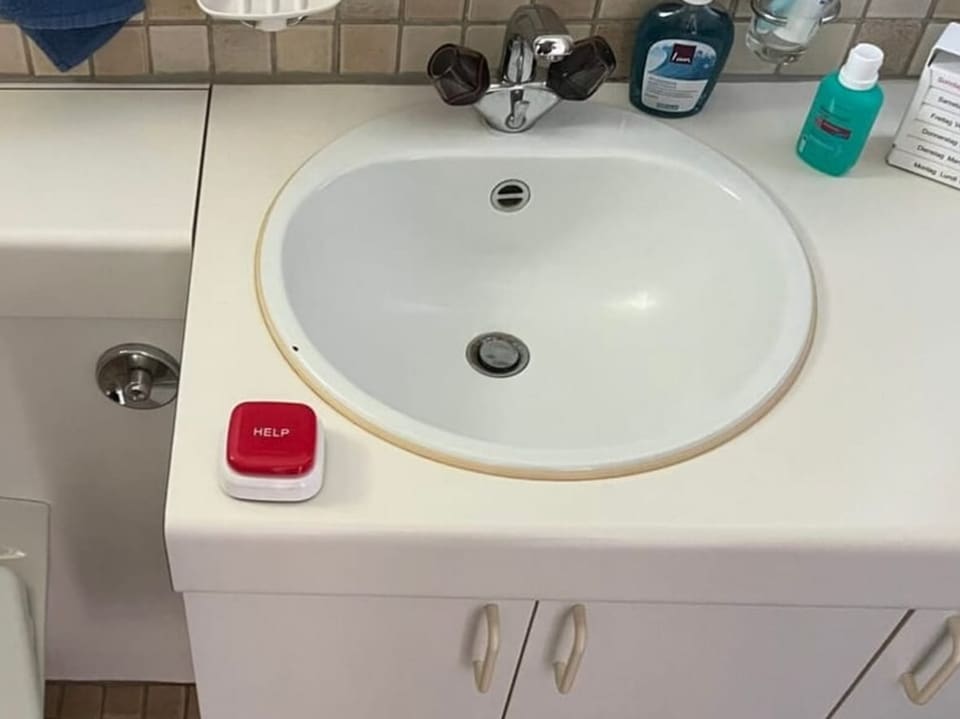
Purana:
In case of emergency: button next to the sink to trigger the alarm.
SAW
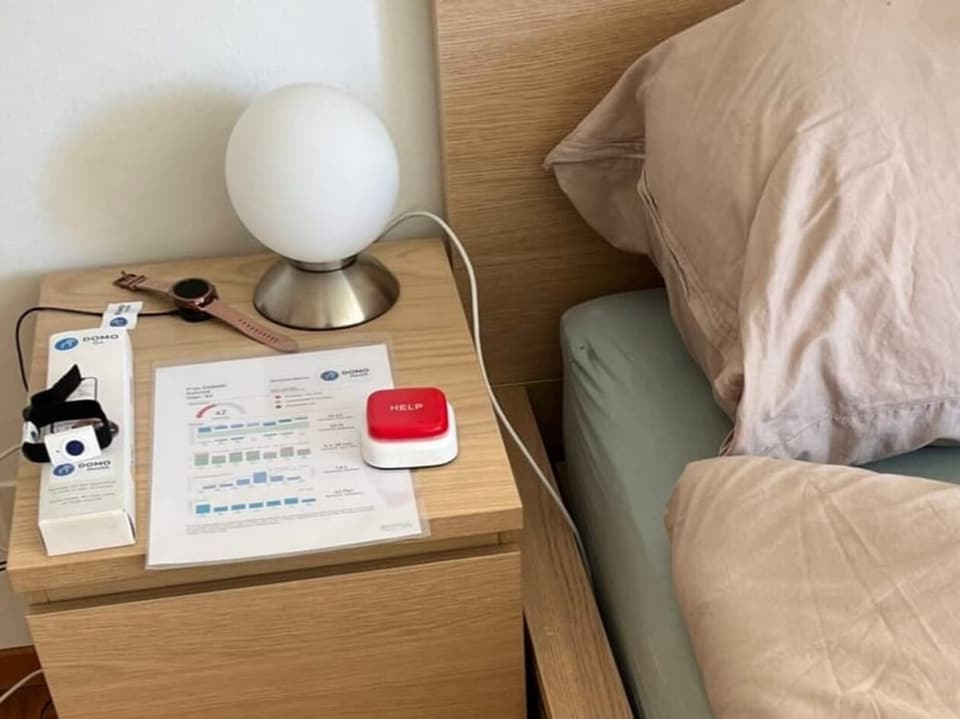
Purana:
Emergency buttons can be placed where they make the most sense.
SAW
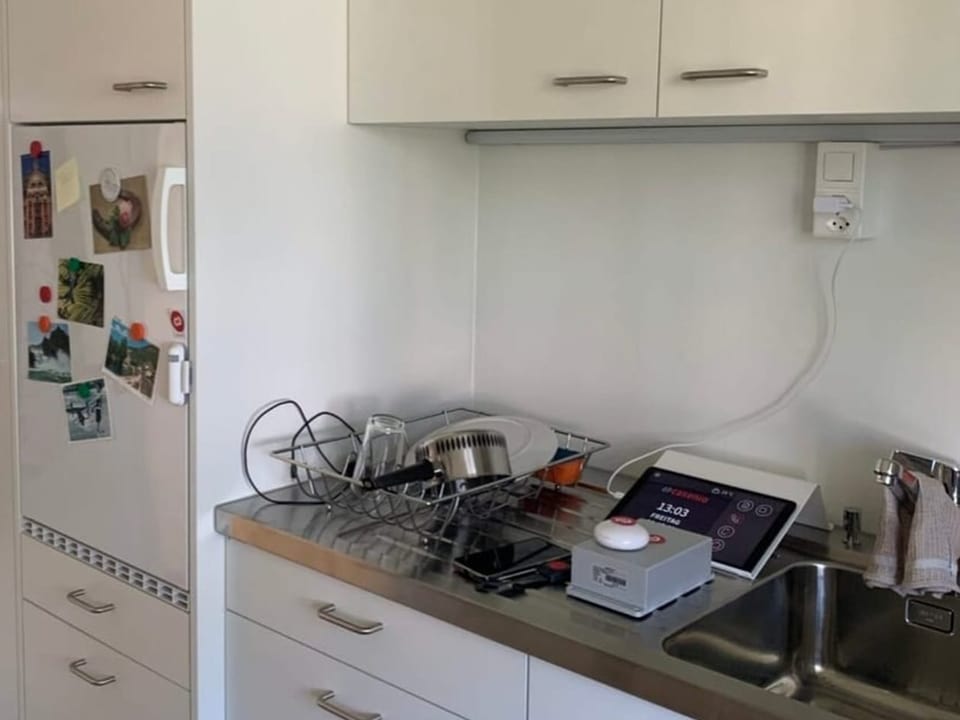
Purana:
Sensors monitor power consumption.
SAW
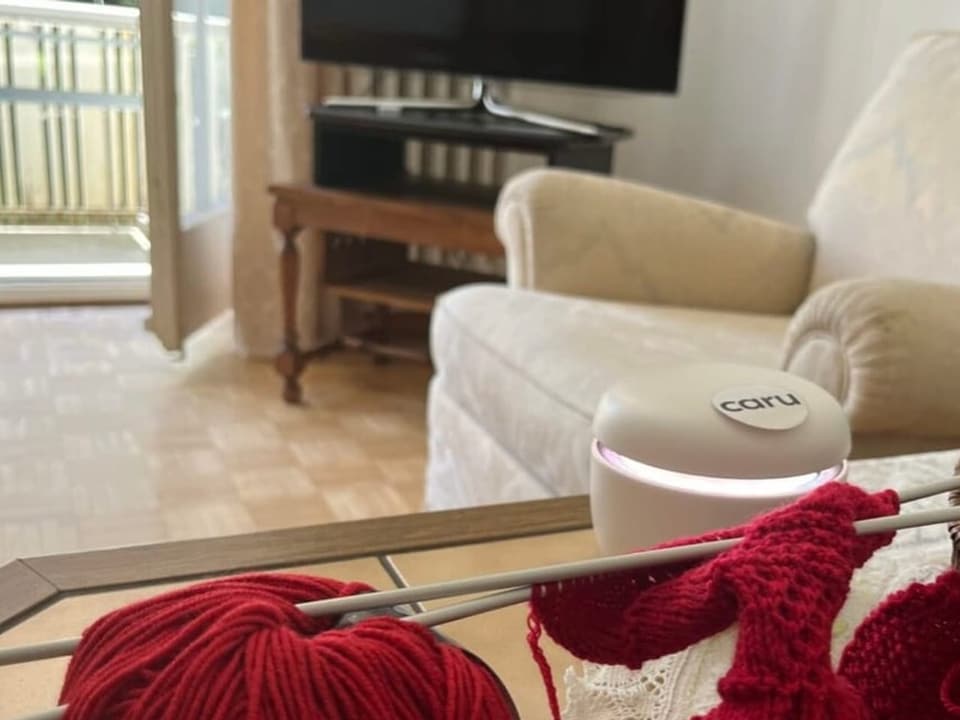
Purana:
You can control the lights or the radio with a voice command.
SAW
In the bathroom, Andreas points out a sophisticated sensor mounted on the dryer ceiling. The device uses radar to detect and analyze movements. If someone falls, an alarm will sound.
Data everywhere
In the kitchen, Andreas Dreyer explains a technology that is completely invisible: the monitoring of electricity consumption. This data only shows if someone forgot to turn off the stove. You can recognize when the daily routine deviates from the norm, for example if someone does not have coffee by nine o’clock.
A microphone in a smart speaker awaits a command, data from various sensors – with this level of surveillance, privacy protection is a central issue that concerns many, says Andreas Dreyer.
It’s important to him that victims decide for themselves which help they want to use, and do so with one goal in mind: to live as long as possible within their own four walls and still feel safe.

“Wannabe pop culture fanatic. Zombie advocate. Entrepreneur. Internet evangelist. Alcohol fanatic. Typical travel buff.”




More Stories
Choosing the Right Quality Management Software for Your Industry
If guests bring items: Can shower gel be packed from the hotel?
This diet can prevent death from dementia